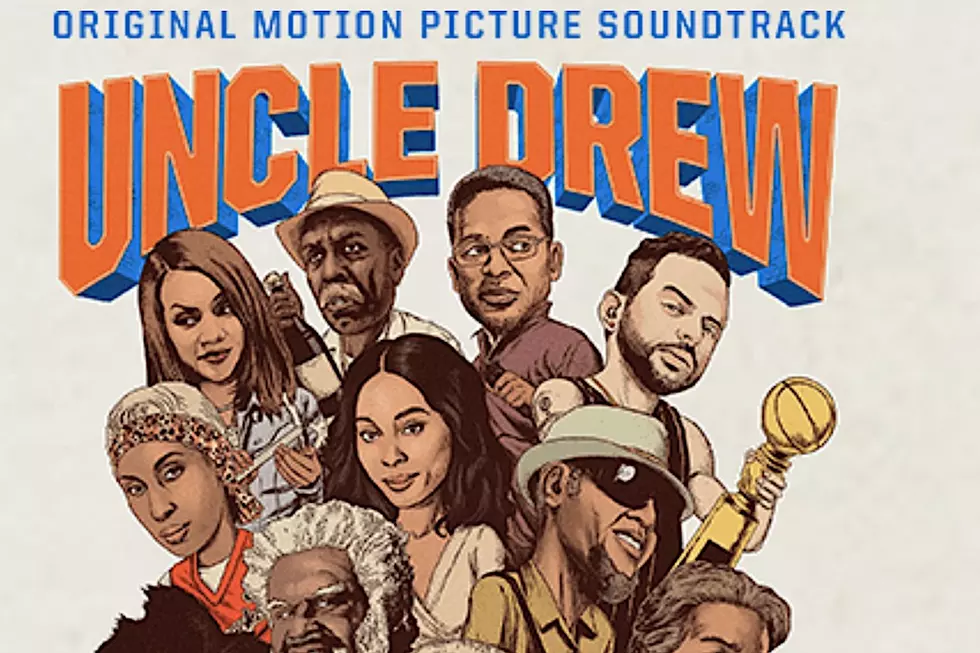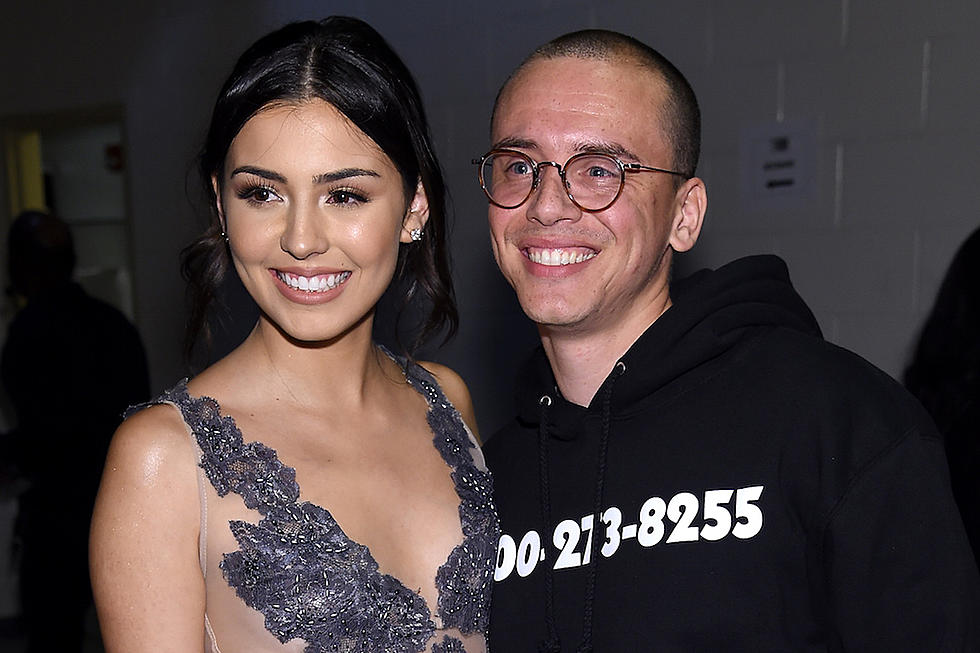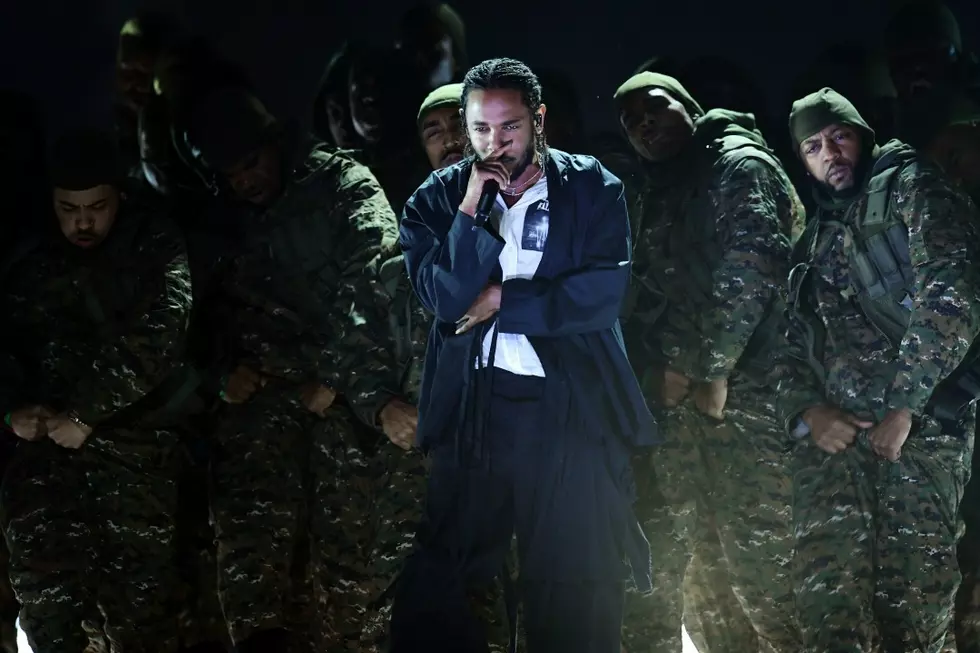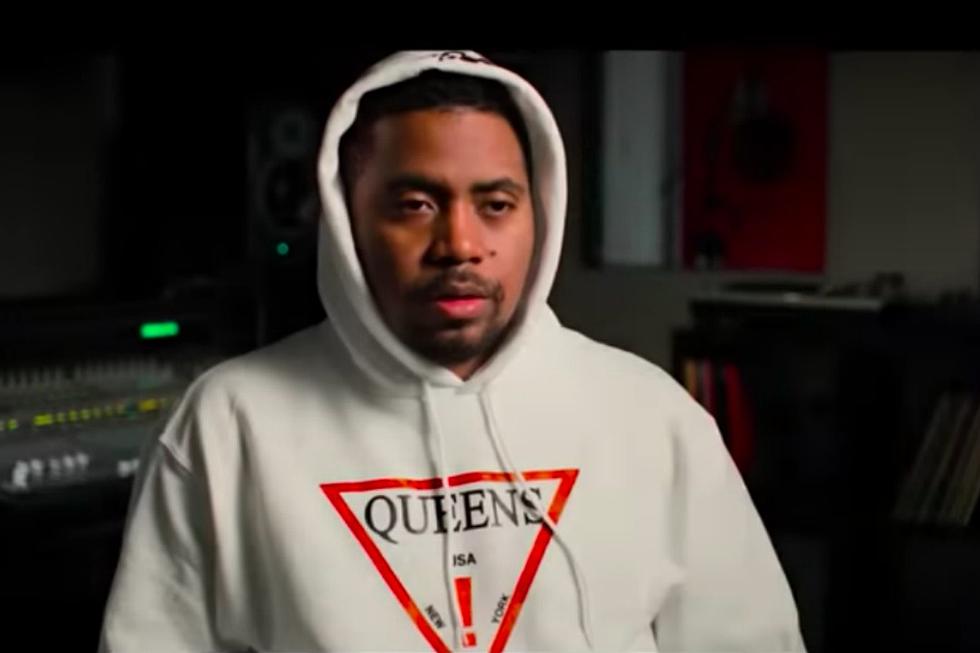
This or That? Logic vs. Illogic
Record labels love white rappers. Just look at who's flourishing in today's climate: Mac Miller just signed a "$10 million" deal with Warner, Macklemore beat out Kendrick for a Grammy, Iggy Azalea made the Doggfather apologize and Logic is competing with T.I. for the No. 1 album this week.
There's just one problem with that logic (forgive me): Logic isn't white. He's bi-racial; his father is black and his mother is white. He said as much in a cypher at the 2014 BET Hip-Hop Awards:
"Check it, I'm biracial, but couldn't tell by the facial / So everybody swears that his parents wasn't interracial / But if I had dreads, sold drugs and screamed, 'F--- the feds,' then maybe just maybe they might give me some street cred."
Hmm. Why does a biracial kid raised in Gaithersburg, Md., who sounds like Kendrick on one too many songs from his debut album, 'Under Pressure,' want street cred -- the kind apparently gained by acting like a stereotypical thug -- so badly? That line sounds bitter, like he's left out of the party. Perhaps that's what the album name refers to -- a biracial rapper feeling the pressure of being mistaken as white when he wants to be identified as biracial. The title 'Under Pressure' could refer to the tension he feels from being categorized as either white or black by society. Earlier in his BET verse, he juxtaposes the image of a white rapper with that of a black icon:
"It's the L-O-G-I-C, I'm reppin MD, yes ya'll know the deal / We keep it real all the time, V's up, thats on my mind / I'm feeling infinite like Eminem's first album / Speak to the people like Malcolm."
There's a lot to unpack there. Stuck between two colors, how does Logic form his identity? Who is the definitive Logic he wants to broadcast to the world?
'Under Pressure' gives us lots of context on Logic's life, from his older brother selling crack to welfare checks bouncing, but his rapping style isn't very idiosyncratic. The 'Intro' on 'Under Pressure' sounds like Abercrombie & Fitch rap, an audio version of a shopping mall display window. The biggest problem with Logic is that he often sounds like too many other rappers: A soufflé of Drake meets Kendrick meets Big K.R.I.T. meets J Cole (he touches almost every one on the second song of the album, creatively titled 'Soul Food'). He may not be doing it on purpose, and he may not be a bionic rapper chemically engineered by Def Jam, but intent doesn't matter; he sounds like a receptacle of recycled ideas.
But none of that matters to mass consumers -- "the kids" seem to love him. He's battling it out with T.I.'s seventh major label album for the top Billboard position this week, and the simple fact that Logic is in the conversation is a testament to his work ethic and fan base. Whoever makes up that fan base wants to see him succeed. His breakout tape was 'Young Sinatra: Welcome to Forever.' Everybody loves Frank Sinatra.
Illogic, on the other hand, will never reach that level, and it probably has little to do with his skin color, though we don't discount the possibility. Illogic is a nerdy, wordy rapper, the kind of artist whose top search result in Spotify is a collaboration with Aesop Rock, despite having six albums on the streaming service.
There's his old stuff: 'Unforeseen Shadows,' the 2001 debut with highly structured, almost academic rhyme schemes; 'Got Lyrics?' and 'Celestial Clockwork' continued his uber-Black Star schtick, diving deeper into the recesses of the mind than most MCs. His concepts often came off as the result of too much alone time (like the above 'Me vs. Myself'), but his bars were always as intricate as spider webs. His style is poetic, broken down to every syllable while delivered in an oft-rushed flow. His angle on beats is completely unique -- though he hails from Ohio, he sounds like he'd fit right at home with the Hieroglyphics crew.
In 2009, he got together with a prestigious underground producer who was right under his nose: Blockhead, the one-time Def Jux beatmaker. The result, 'Capture the Sun,' isn't either of their best work, but it does give Illogic's music a bit more life than previous projects. He hasn't lost a step on the mic, metering out sounds like an endless scroll being fed into a rhyming typewriter. It's both a welcome throwback to the best of the Def Jux / Rhymesayers era, and a refreshing update to the dusty, mom's basement aesthetic of so much underground rap from the aughts.
Logic's album is enjoyable; it coasts on the production prowess of masters like DJ Dahi, S1, Tae Beast and Logic's closest collaborator 6ix, who handles four out of 12 beats and co-produces on another two. You can spin 'Under Pressure' without wanting to take it off. Most people just listen to the beats anyway. When you scrutinize the lyrics, you hear tales of poverty, but too often they're interspersed with cliché wordplay like "energy" and "inner g" or talks of the grass being greener. Middle school kids will eat this up.
There's a certain type of brainy middle schooler that will eat up Illogic's music too, though they may be outnumbered by Logic fans five to one. Illogic is cerebral music, demanding multiple listens before you can even grasp some concepts at times. His music is challenging, not exactly drop-top in Long Beach music. 'Under Pressure' is dark but accessible. Illogic's music is more arcane; it doesn't fit too many scenarios.
So ultimately, these two have different strengths and weaknesses. You can bump Logic in the car with homies, but Illogic, not so much. Alternately, you can unwind Illogic songs to find deeper meaning in his syllabic structures, while Logic puts everything on the table, almost spelling it out for the listener. Two vastly different types of rappers appealing to two diametrically opposed groups of fans -- though you can be a fan of both.
So nobody "wins" this week. If you like what the kid Logic has to offer, 'Under Pressure' is good enough to spin in the background. You may even temporarily forget he sounds like an experiment concocted by 27 A&Rs. Illogic is hardly background music; it's heady headphone s---, backpack sold separately. His album with Blockhead proves independent hip-hop lives on, despite being in the shadow of all the blockbuster stuff. Stars are blazing hot, but you can find some respite in the shade.
More From TheBoombox



![Logic Responds to Joyner Lucas on ‘Bobby Tarantino II’ Track ‘Yuck’ [LISTEN]](http://townsquare.media/site/625/files/2018/03/Logic-Respnds-to-Joyner-Lucas.jpg?w=980&q=75)
![Joyner Lucas Disses Logic on Blistering Track ‘Look Alive’ Remix [LISTEN]](http://townsquare.media/site/625/files/2018/03/Joyner-Lucas-Look-Alive.jpg?w=980&q=75)


![‘South Park’ Spoofs Logic’s Suicide Prevention Song ‘1-800-273-8255′ [VIDEO]](http://townsquare.media/site/625/files/2017/09/South-Park-Parody-Logic-Song.jpg?w=980&q=75)
![Logic Delivers Inspirational 2017 MTV VMA Performance Alongside Alessia Cara and Khalid [WATCH]](http://townsquare.media/site/625/files/2017/08/GettyImages-840007502.jpg?w=980&q=75)
